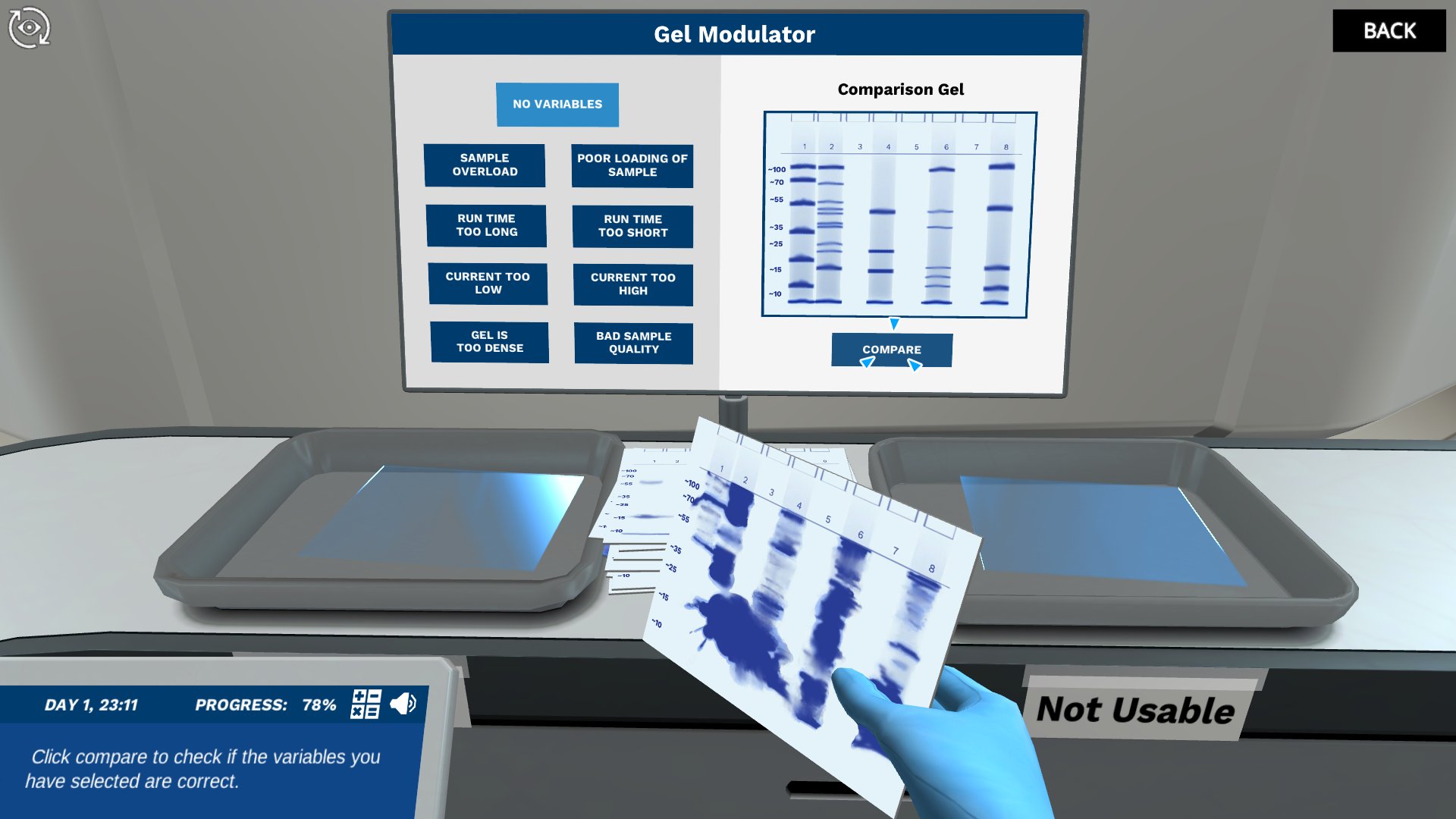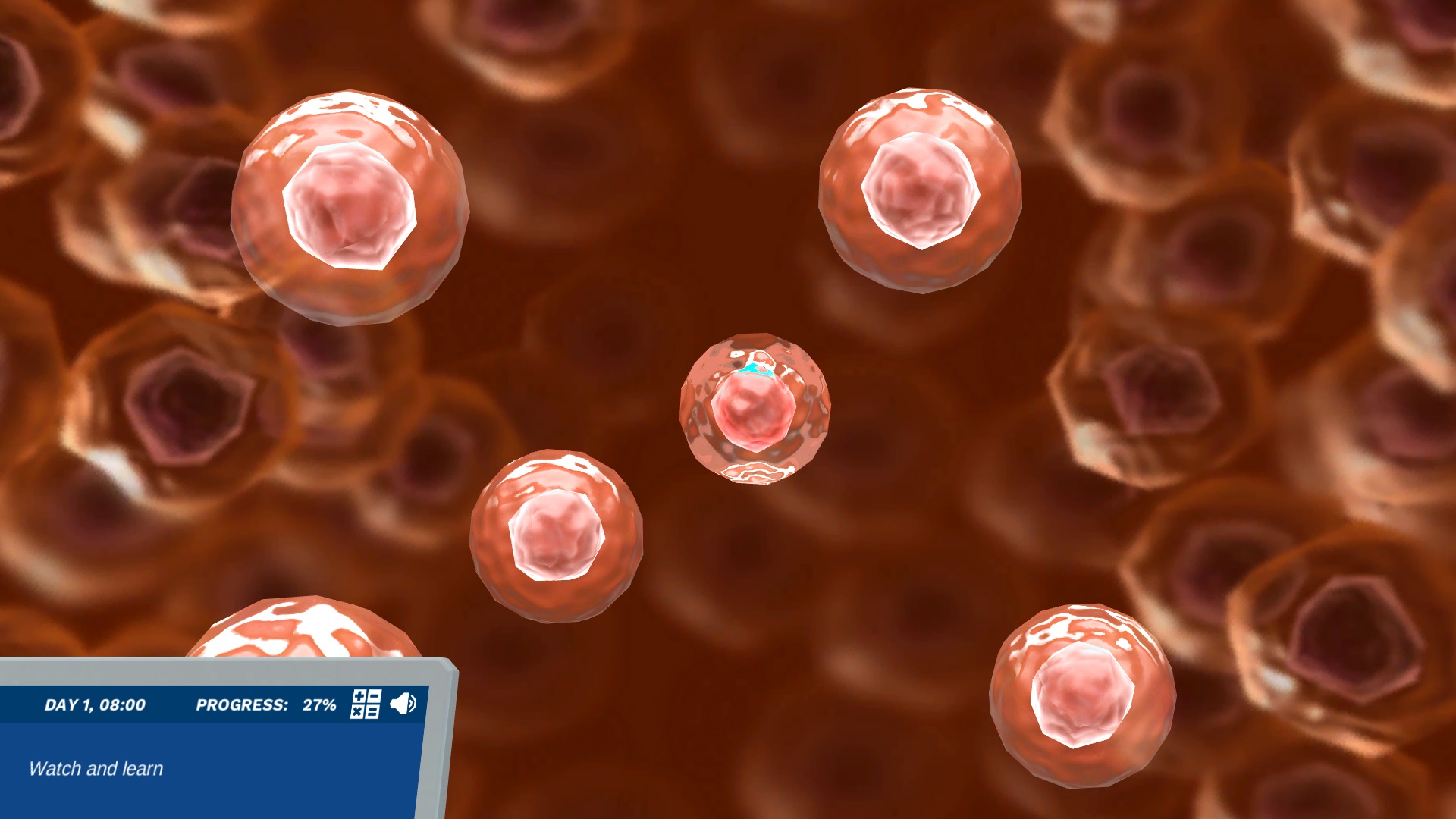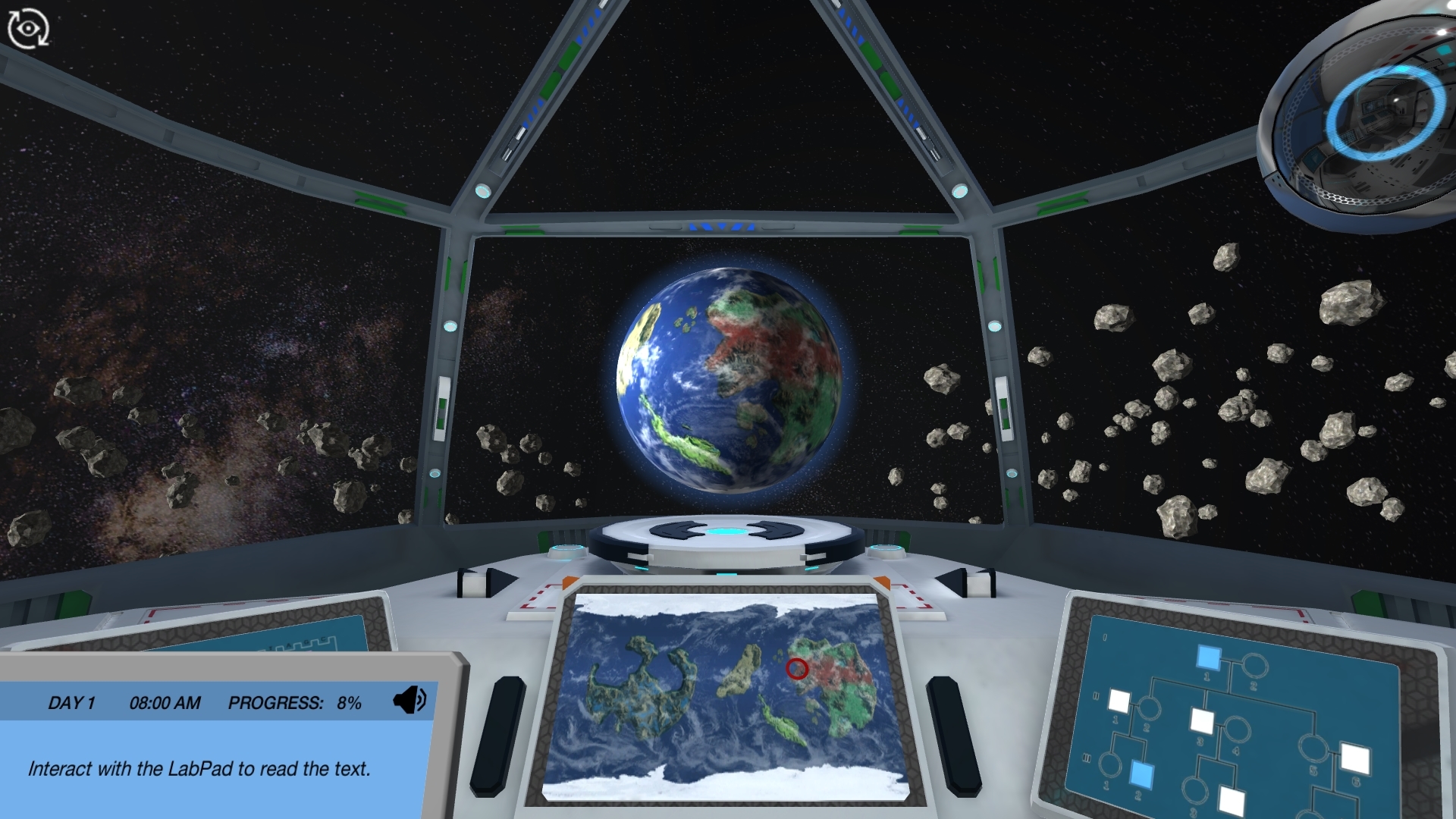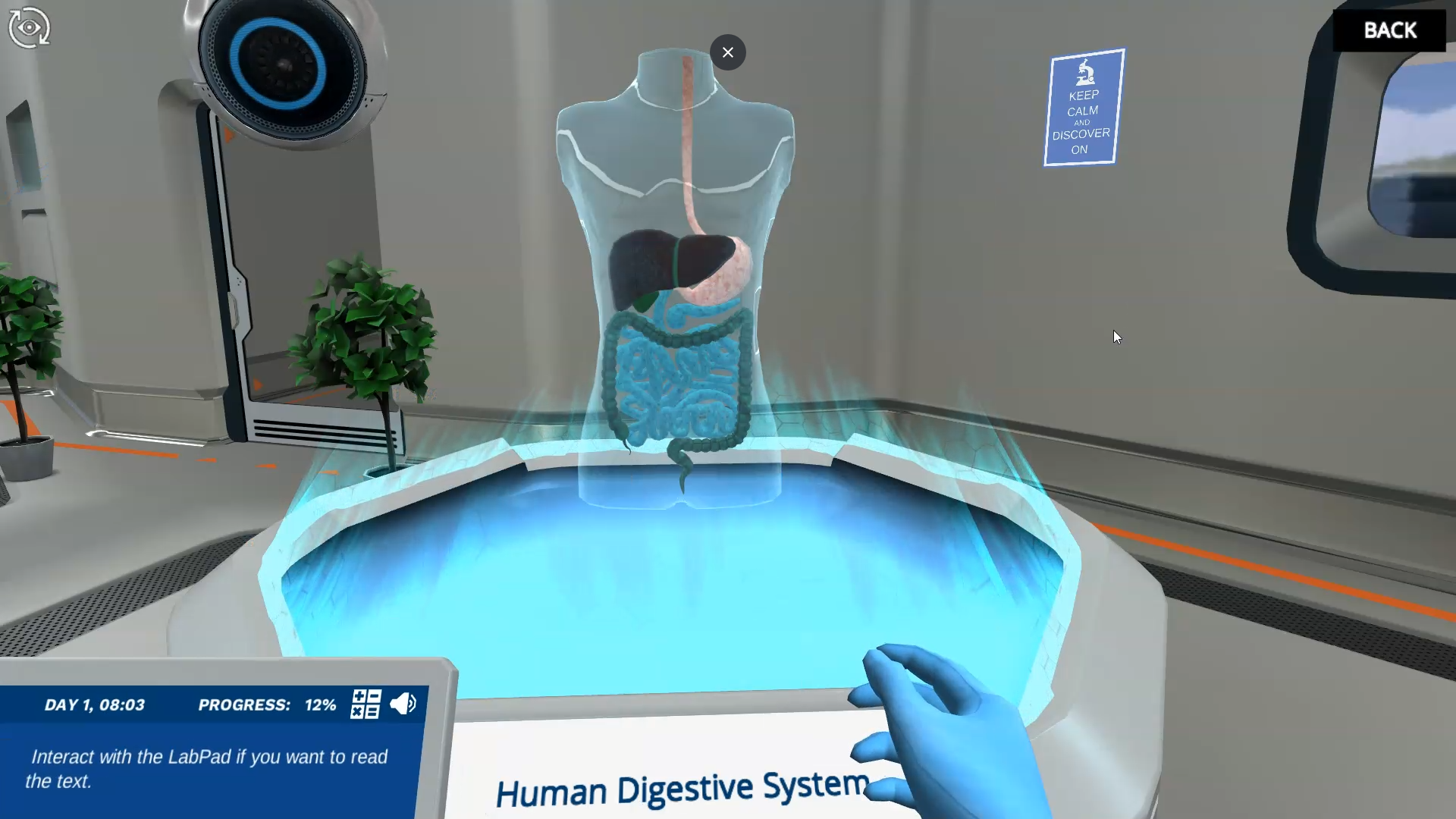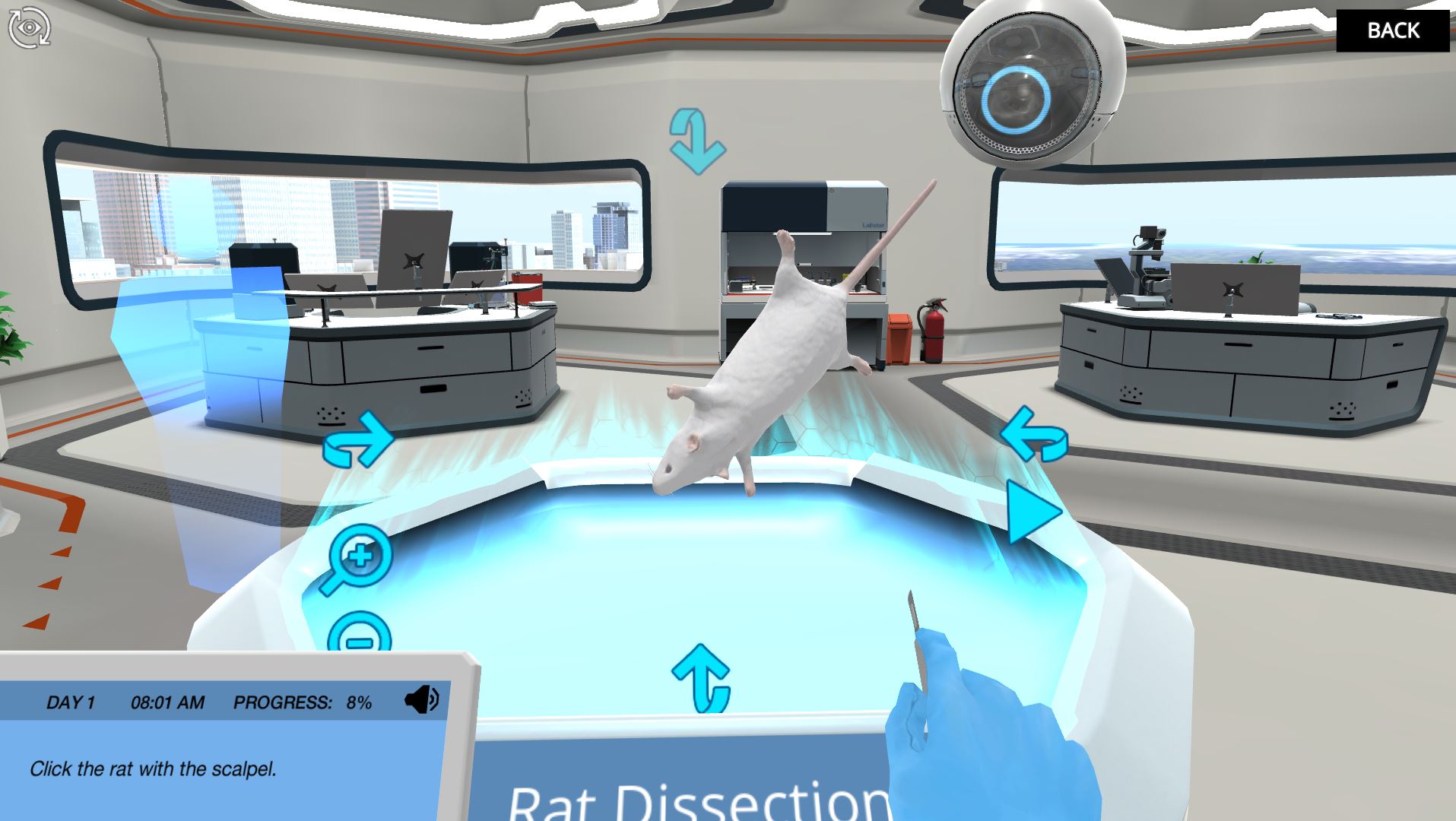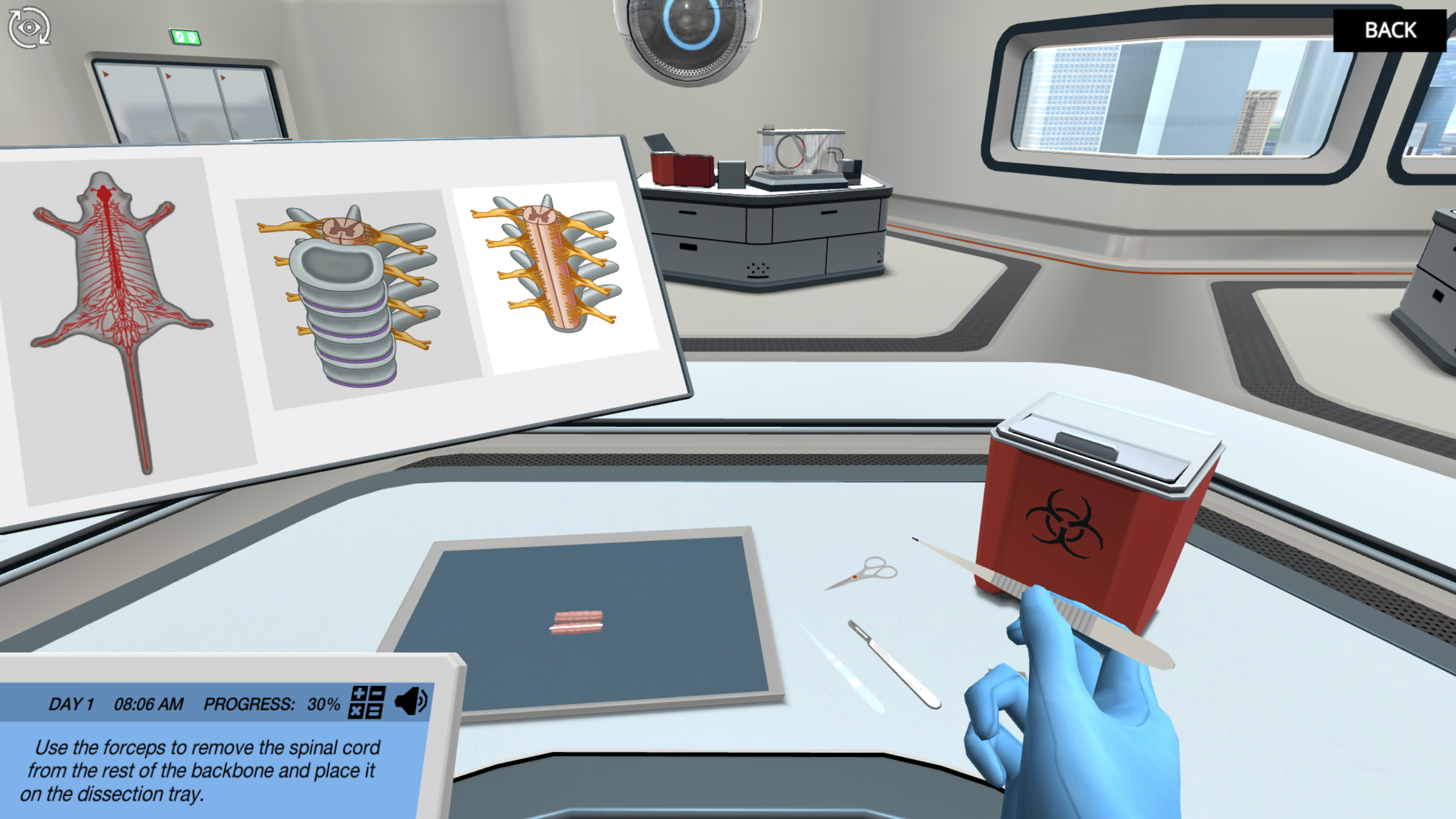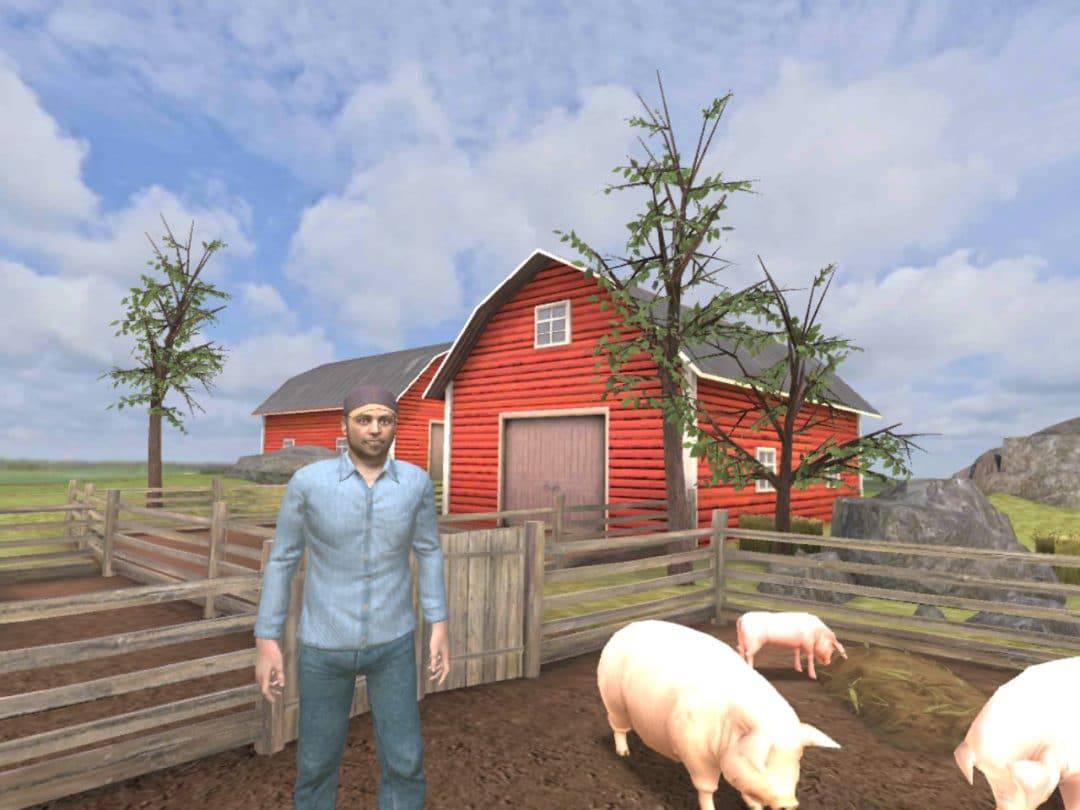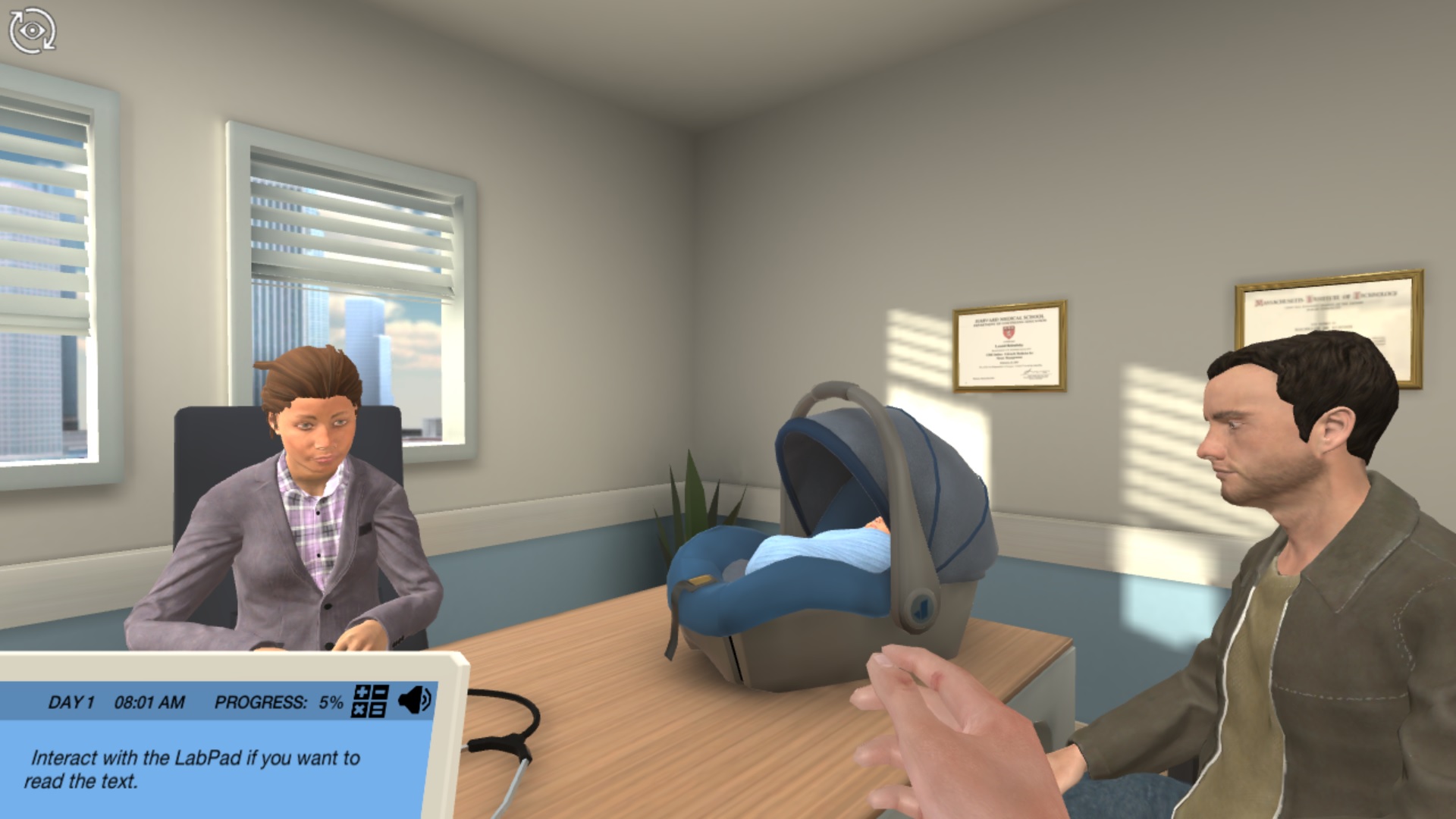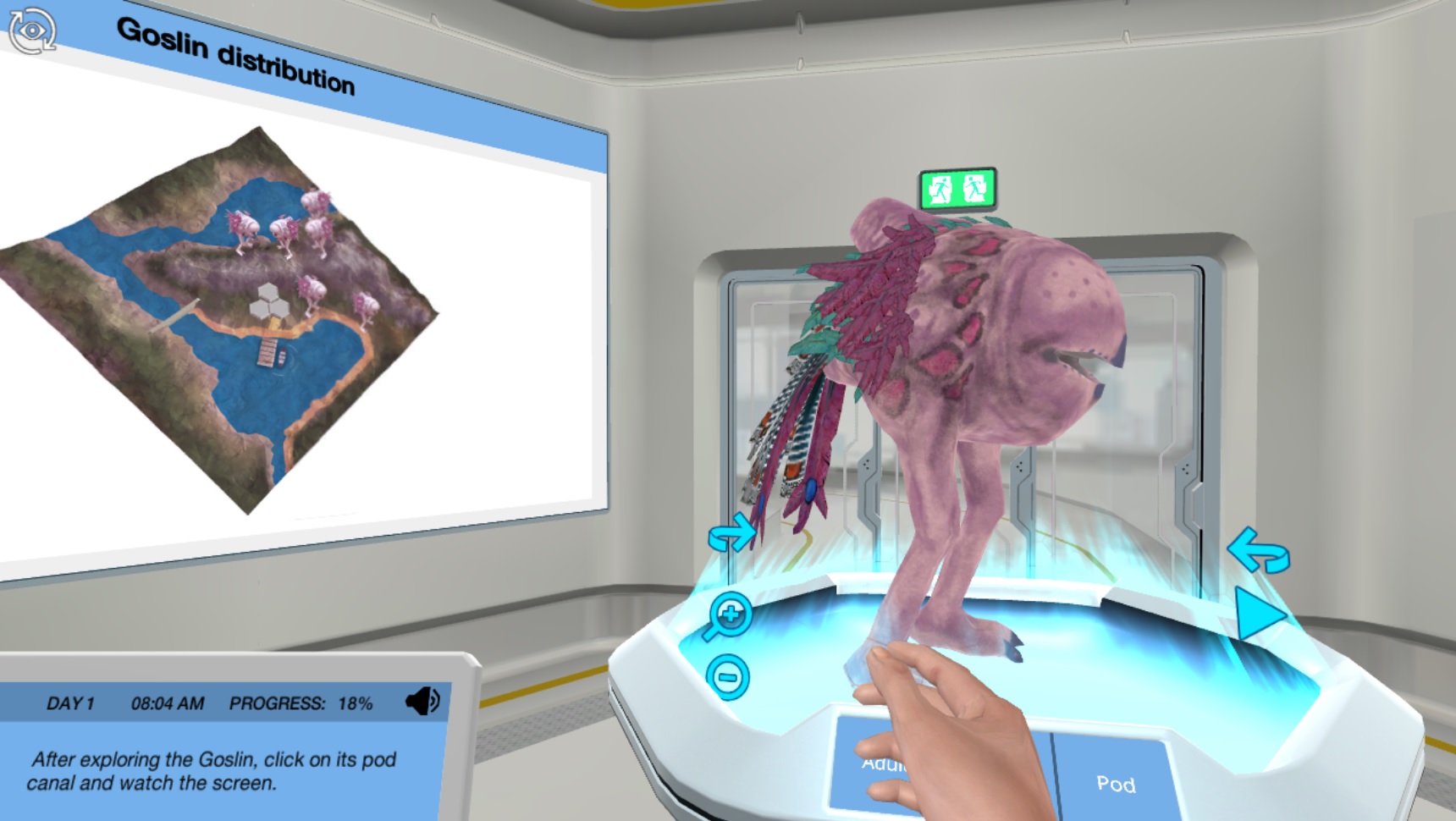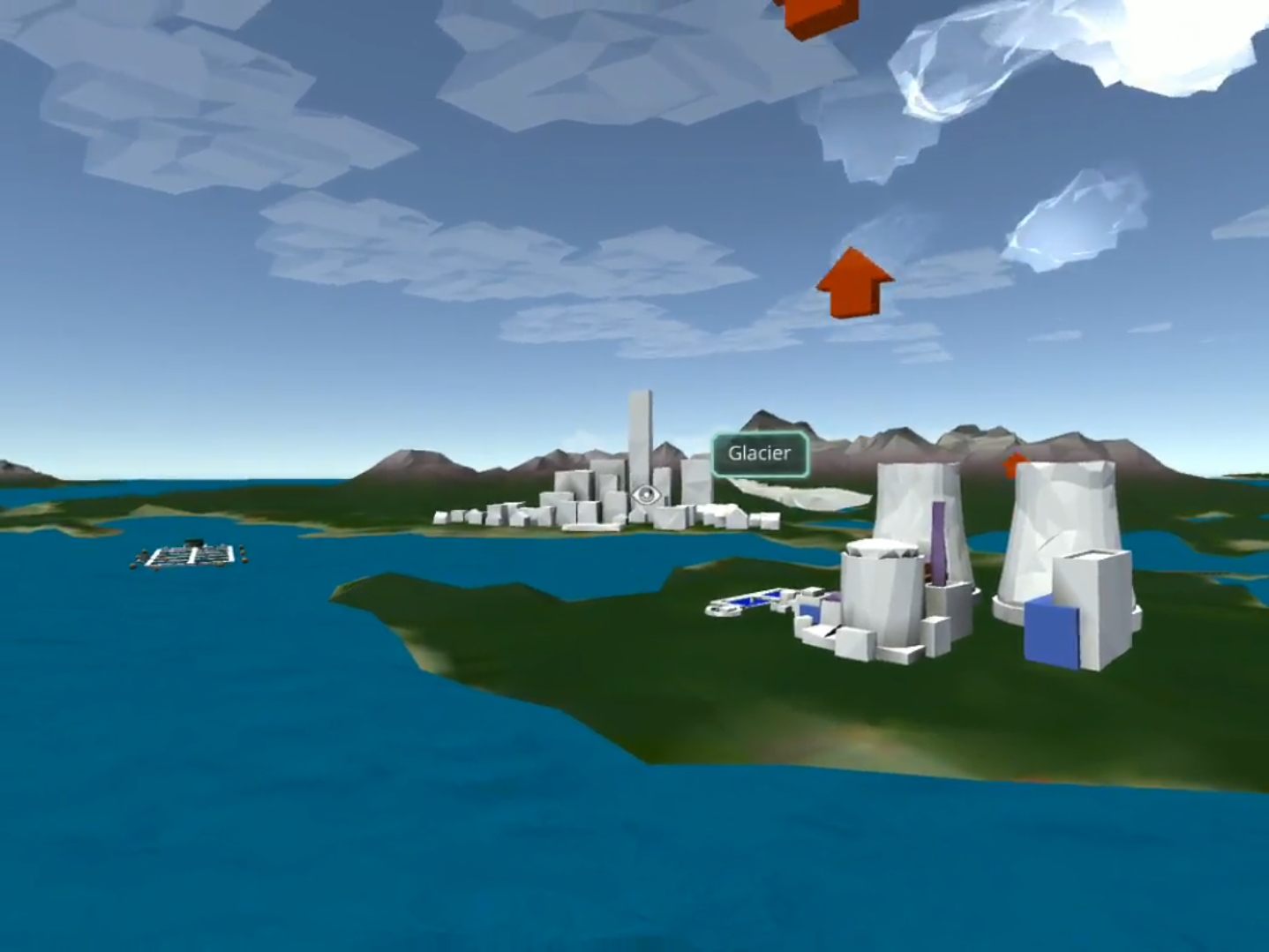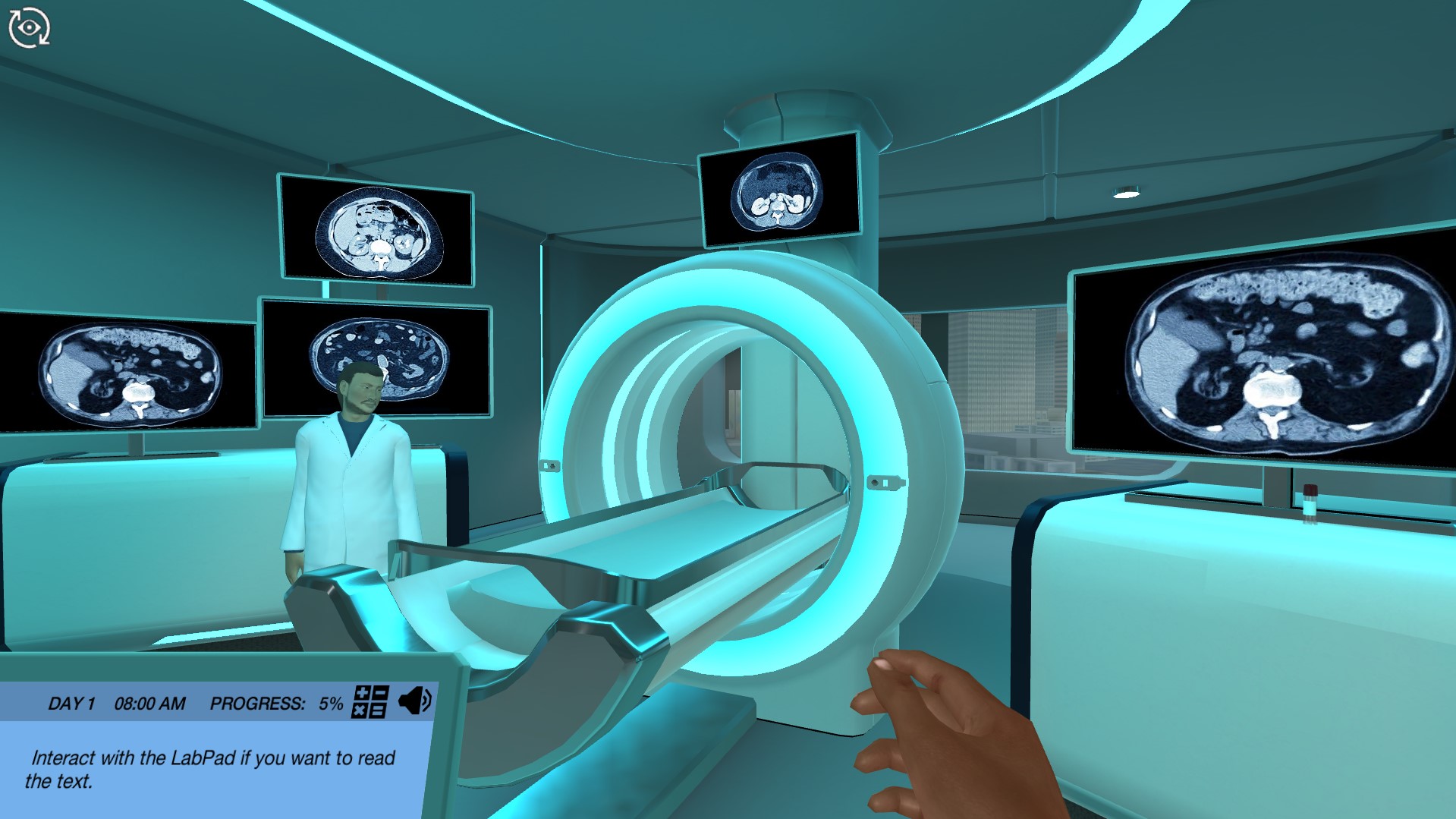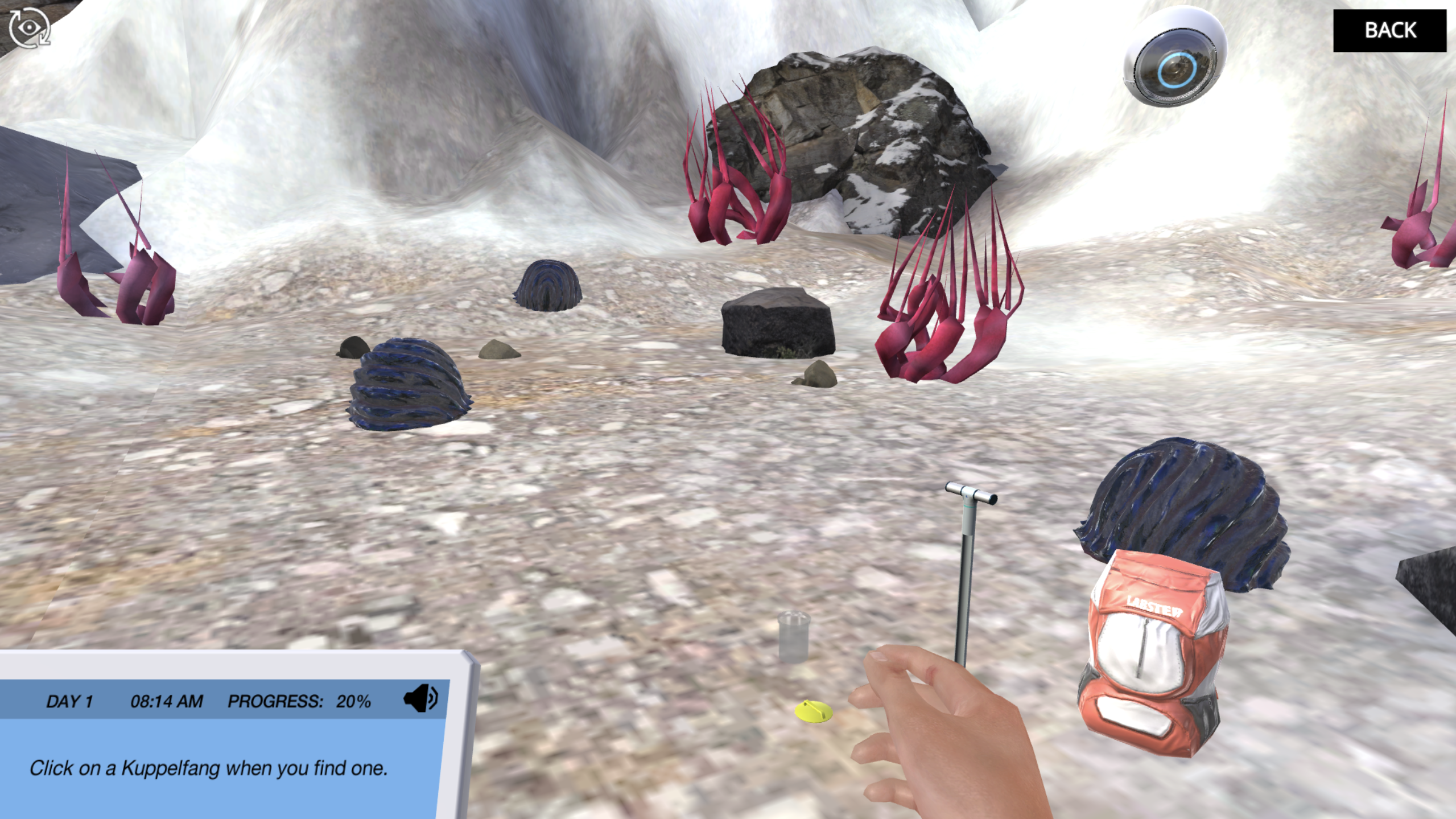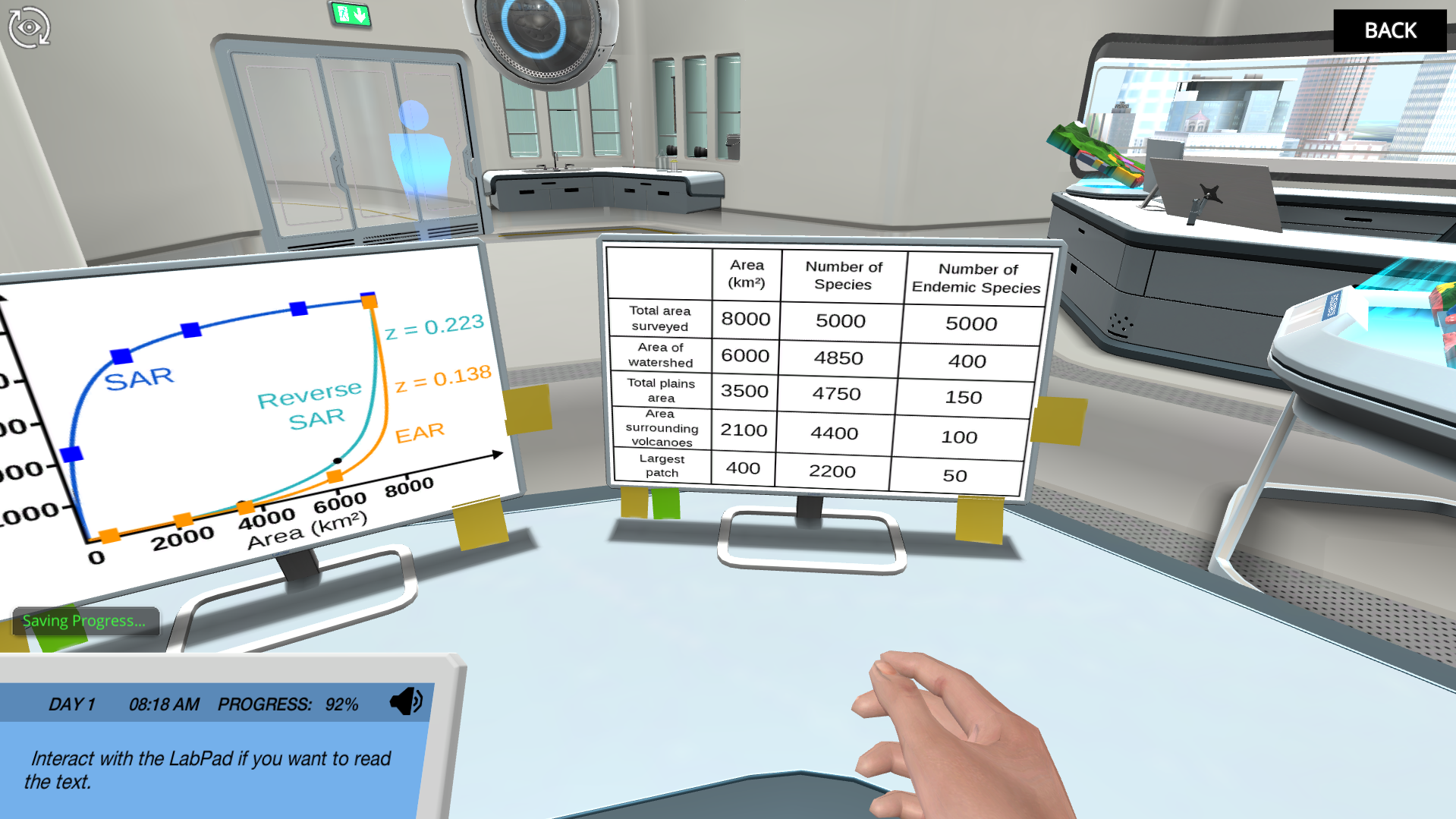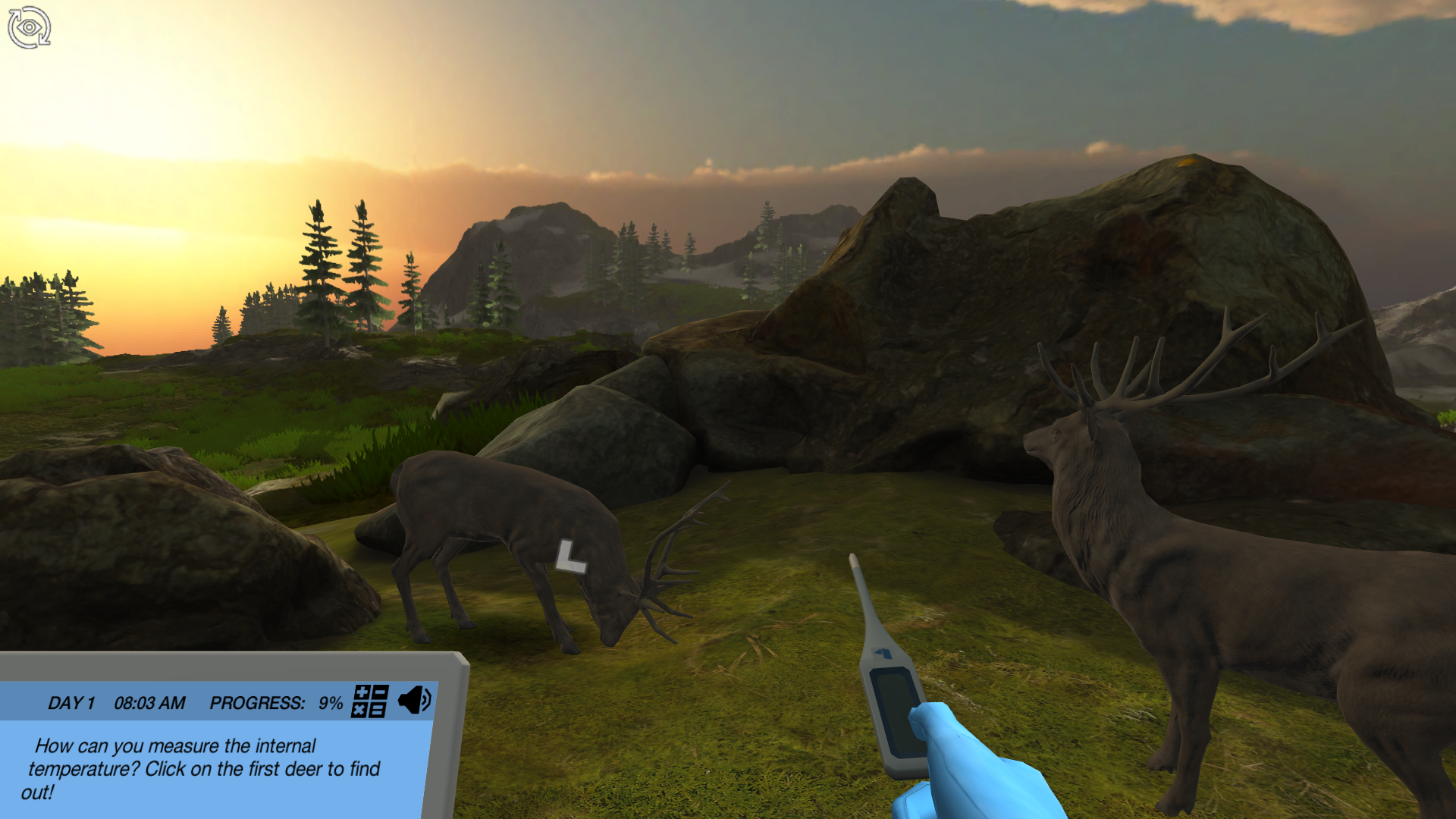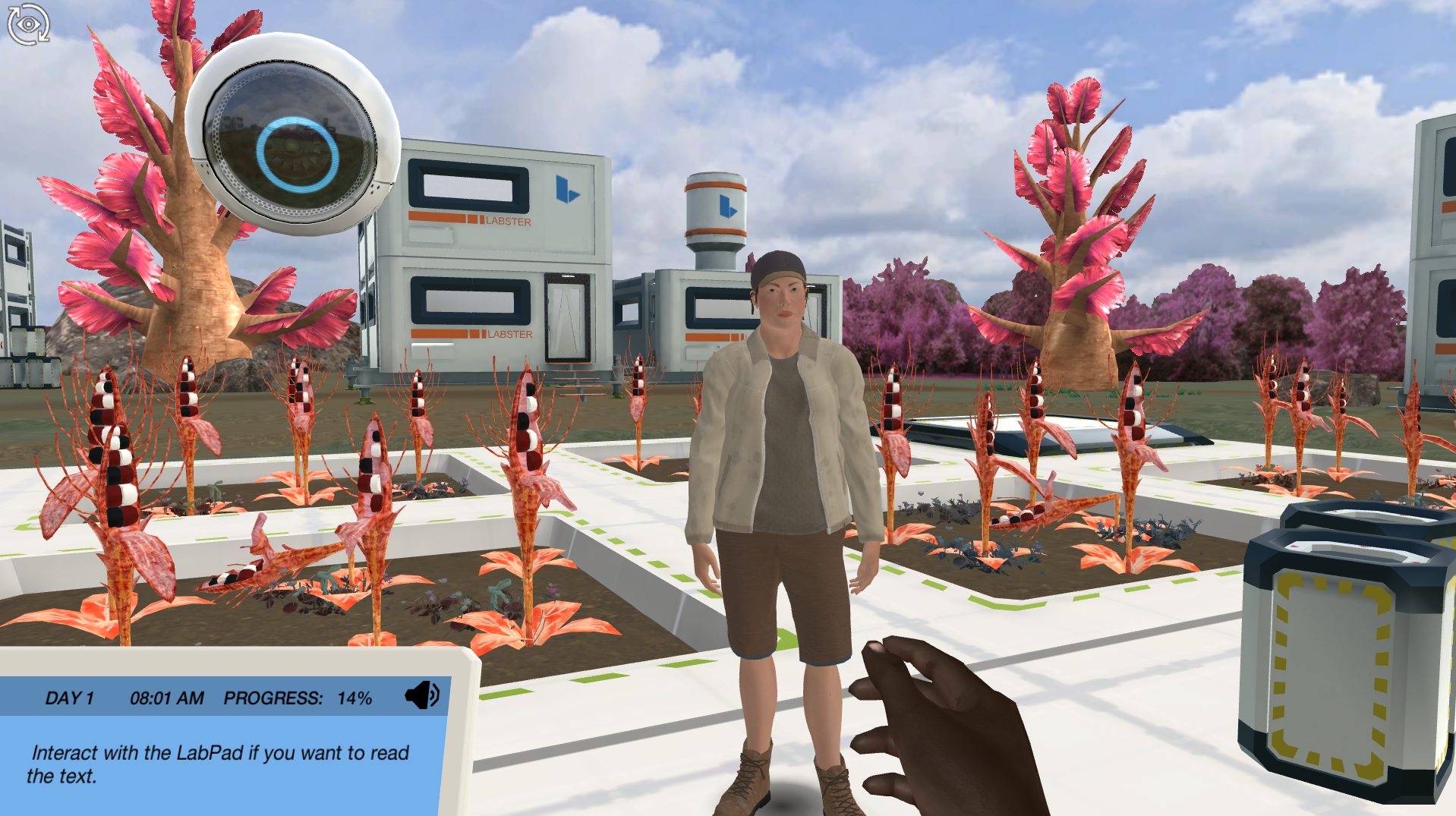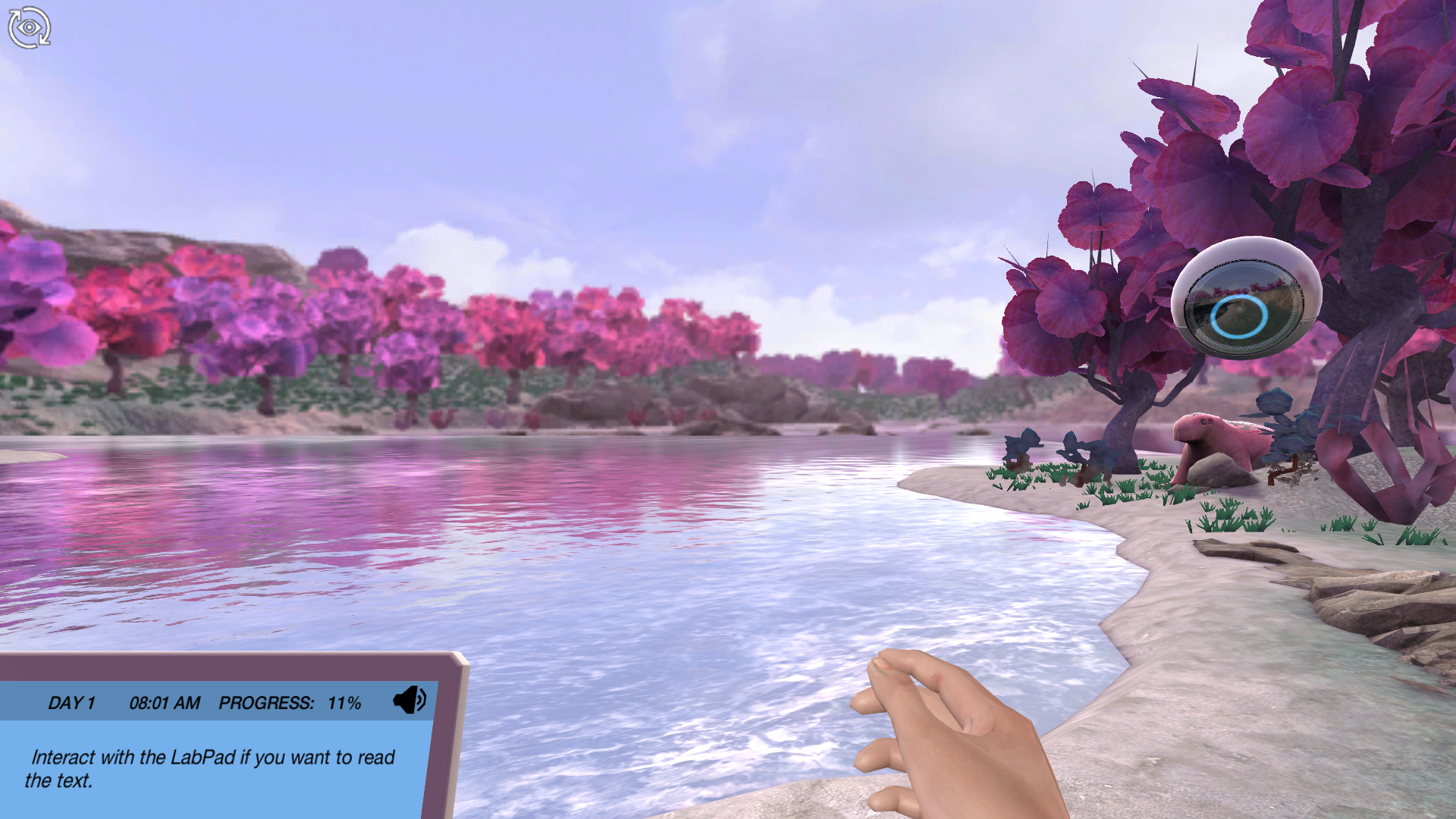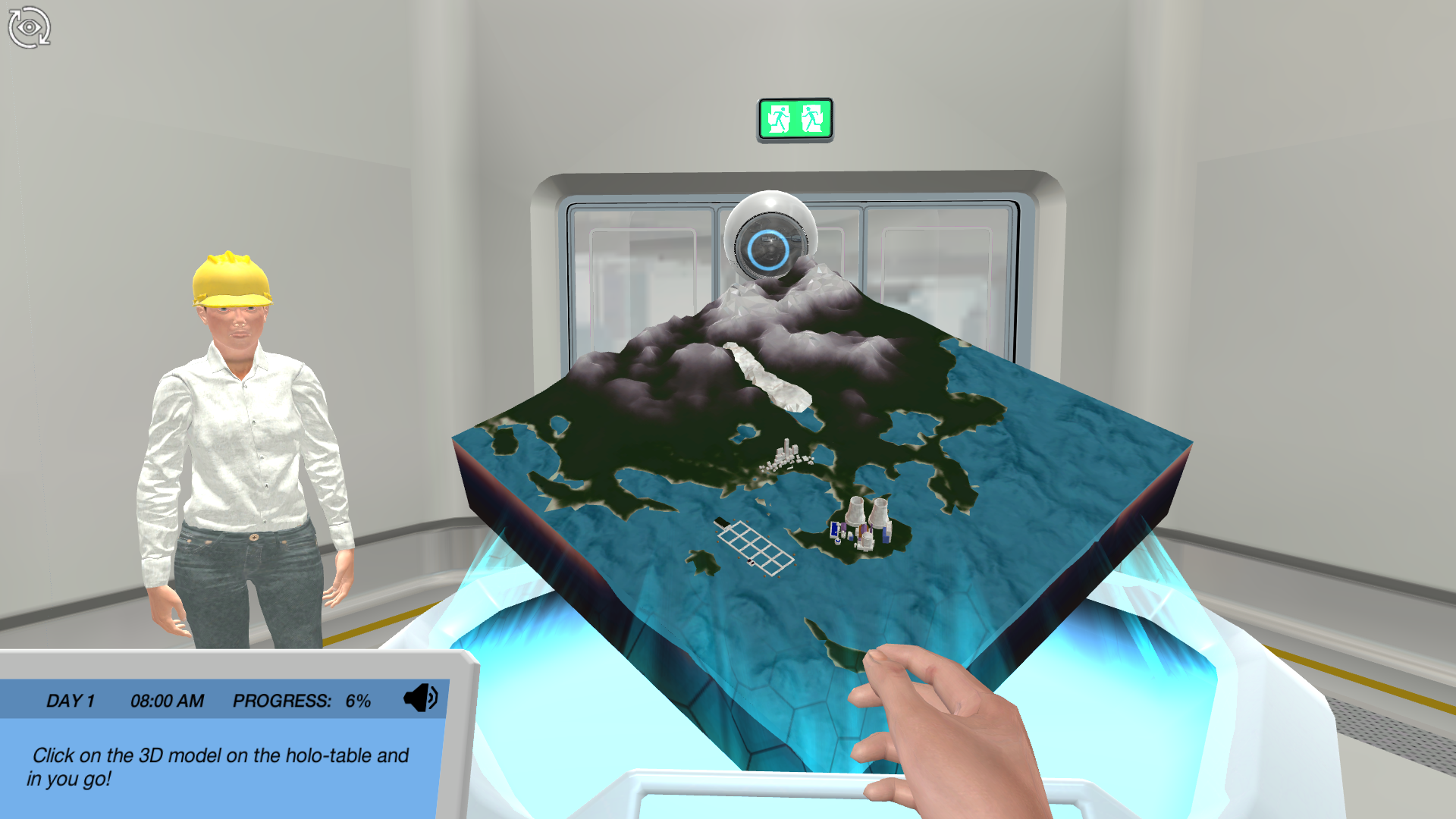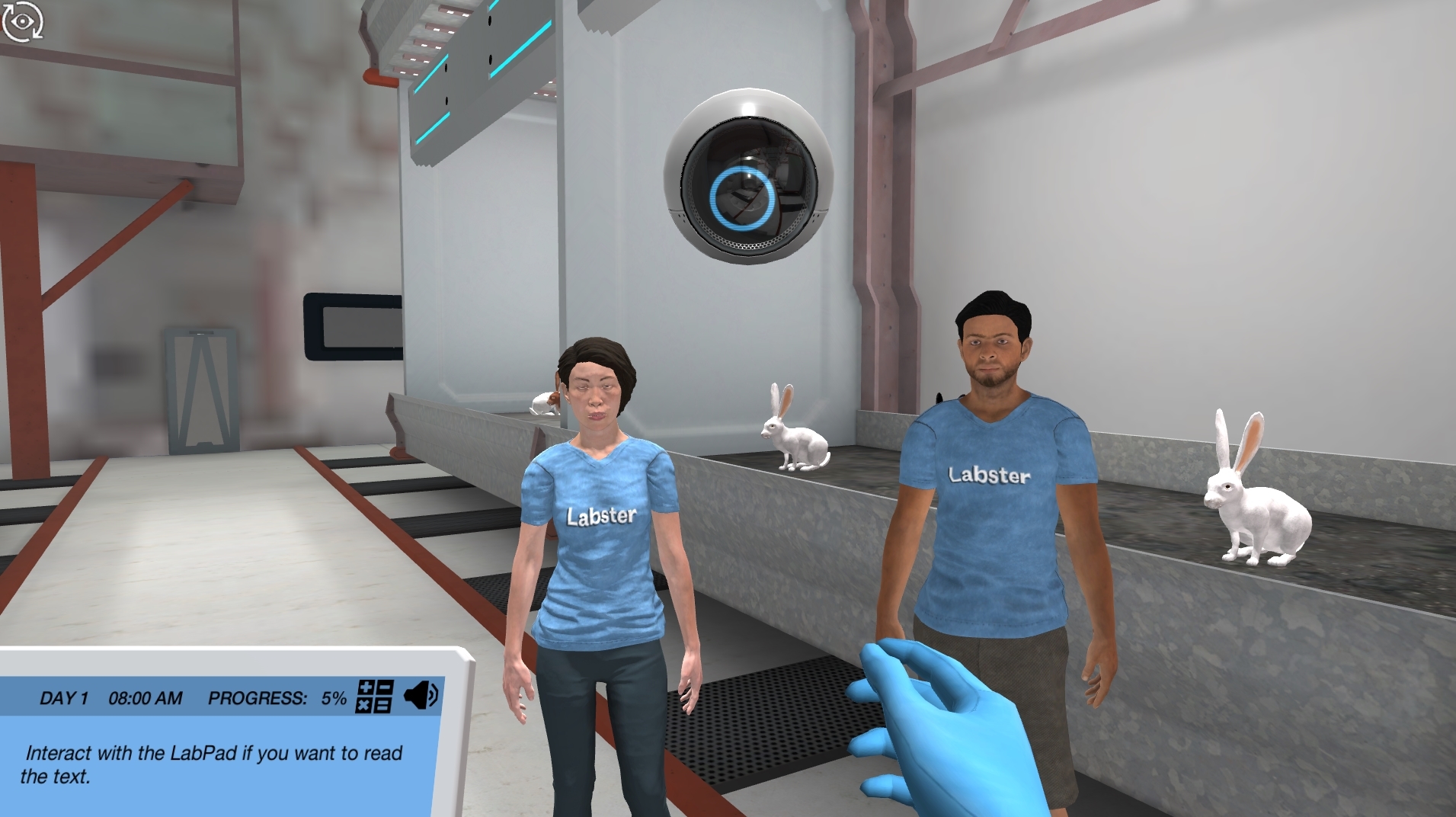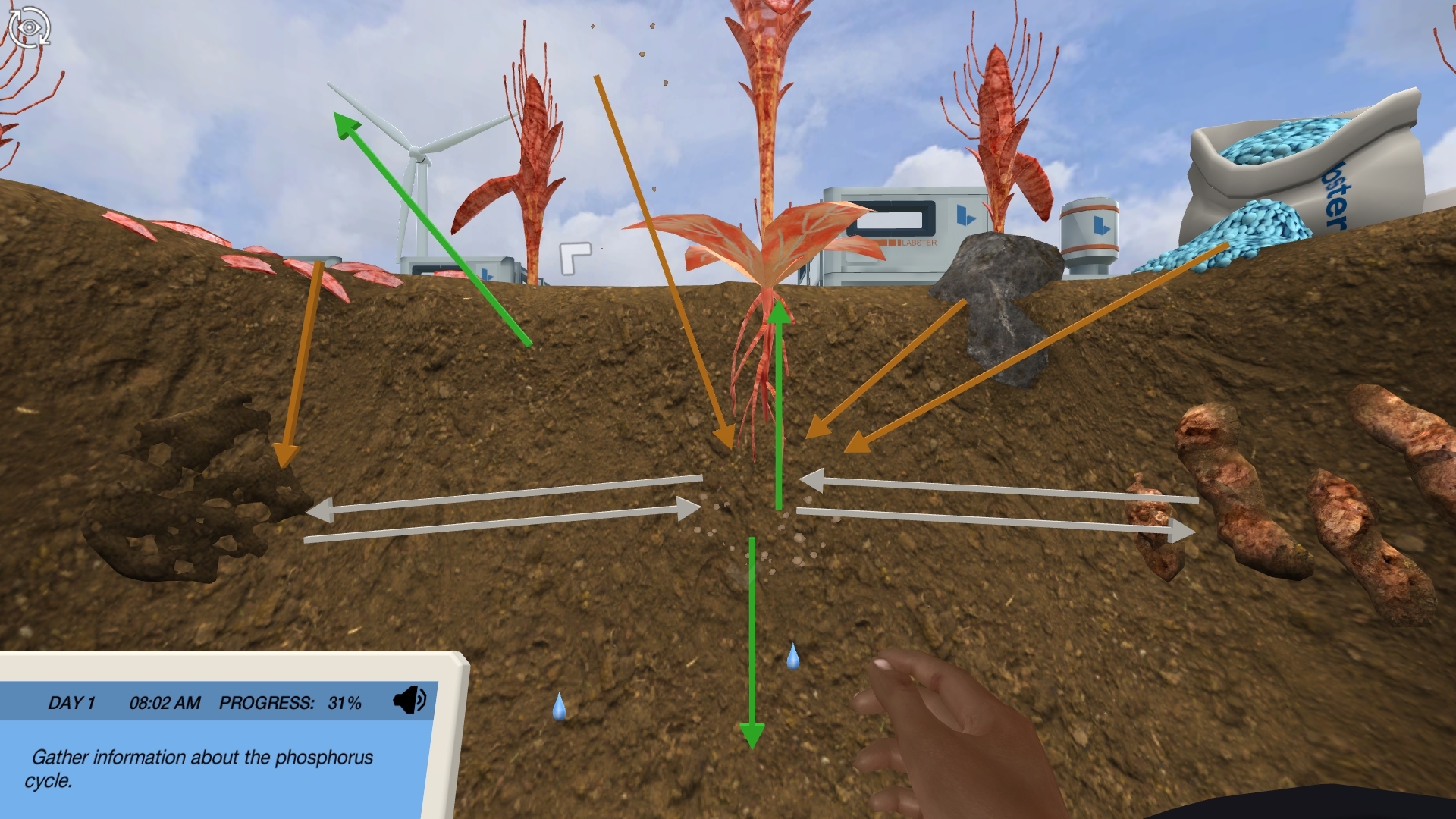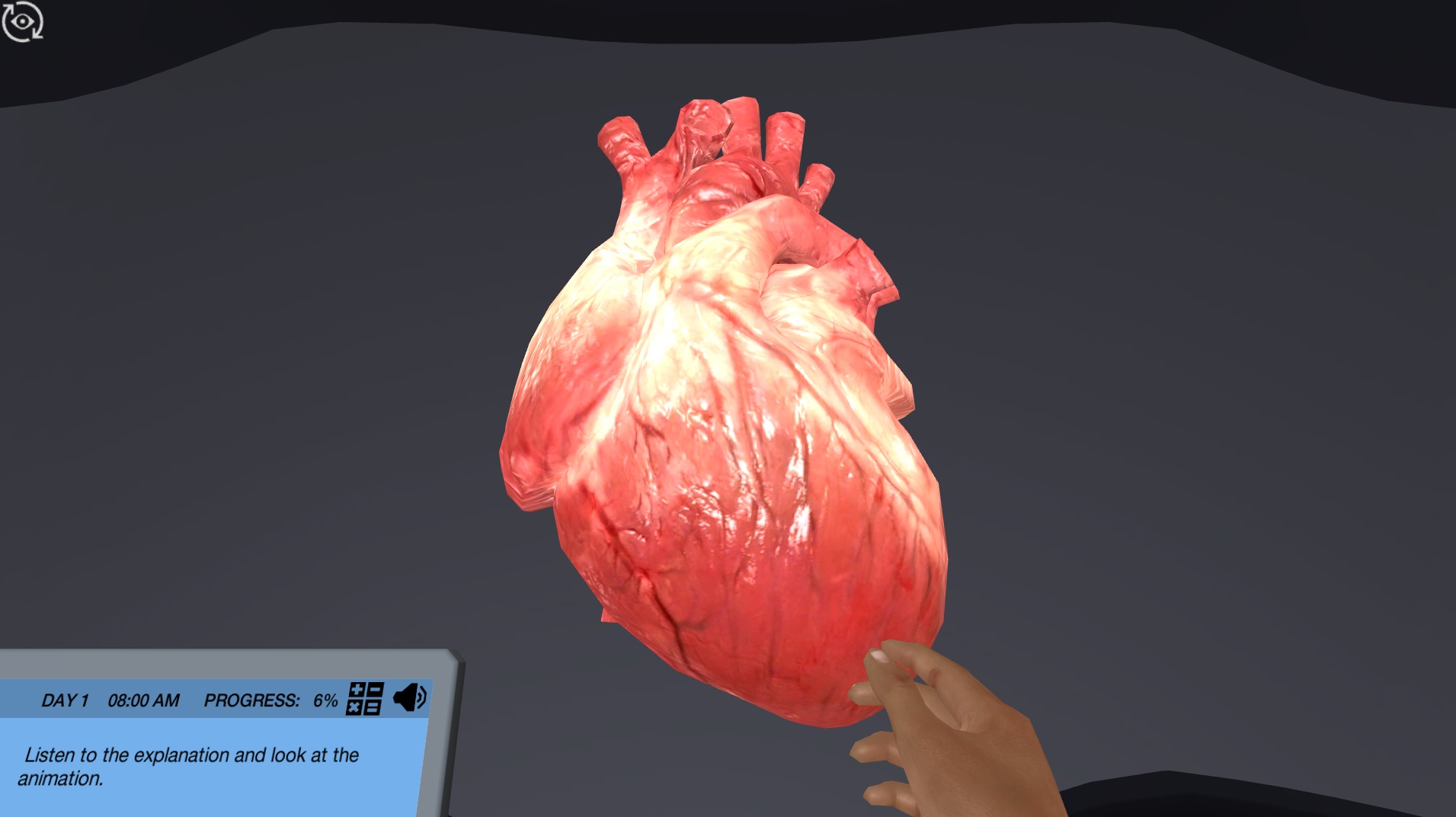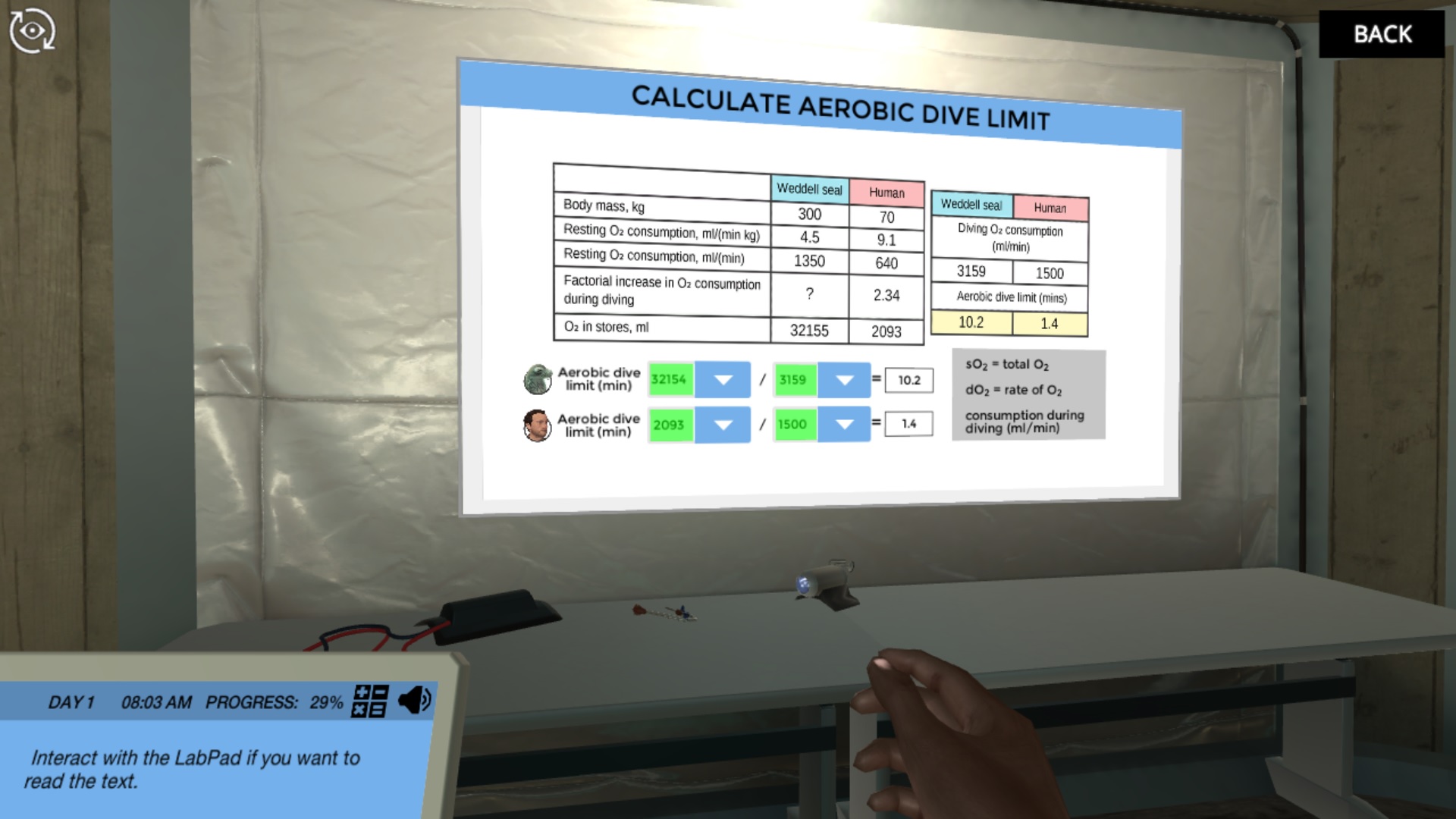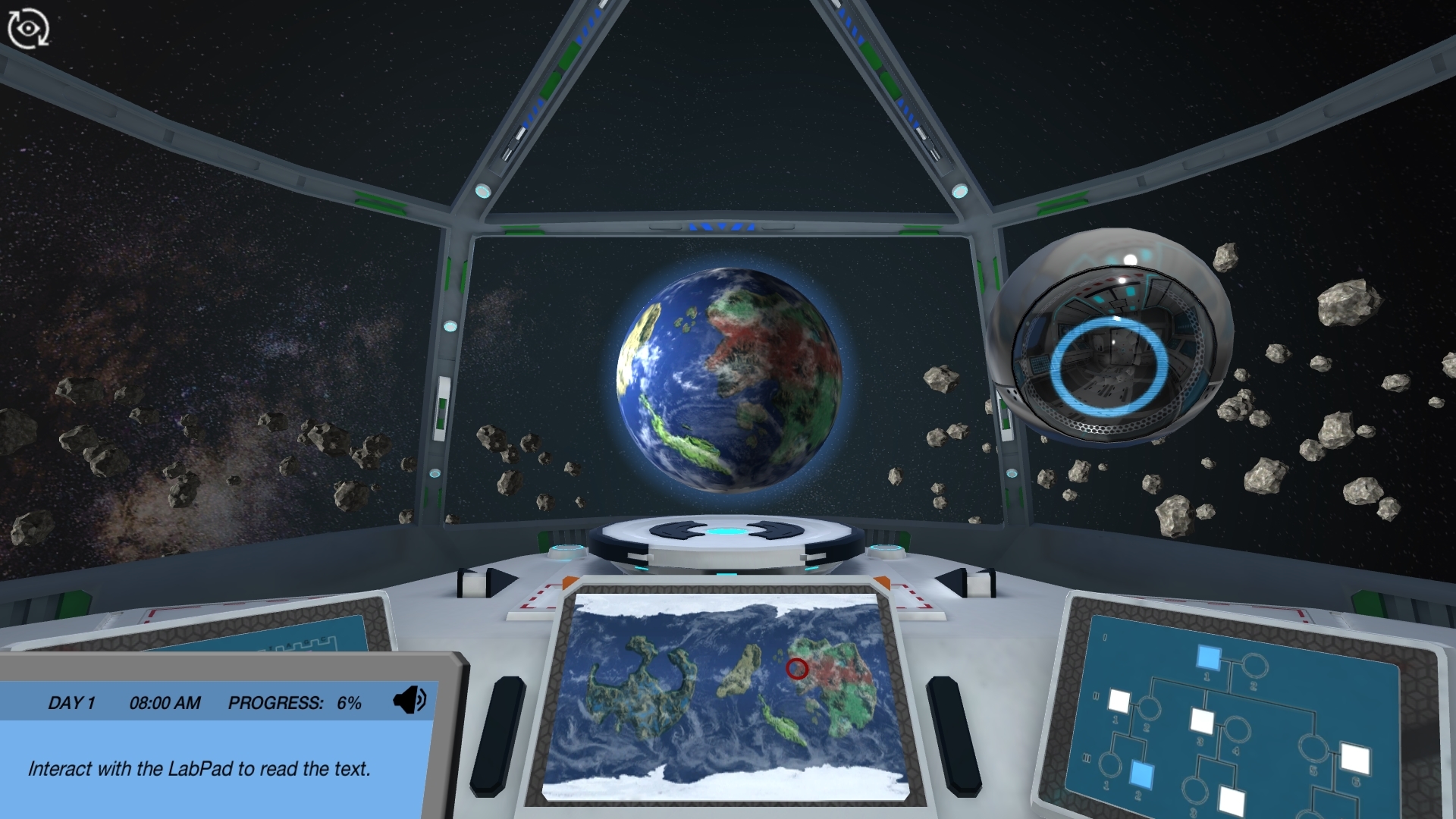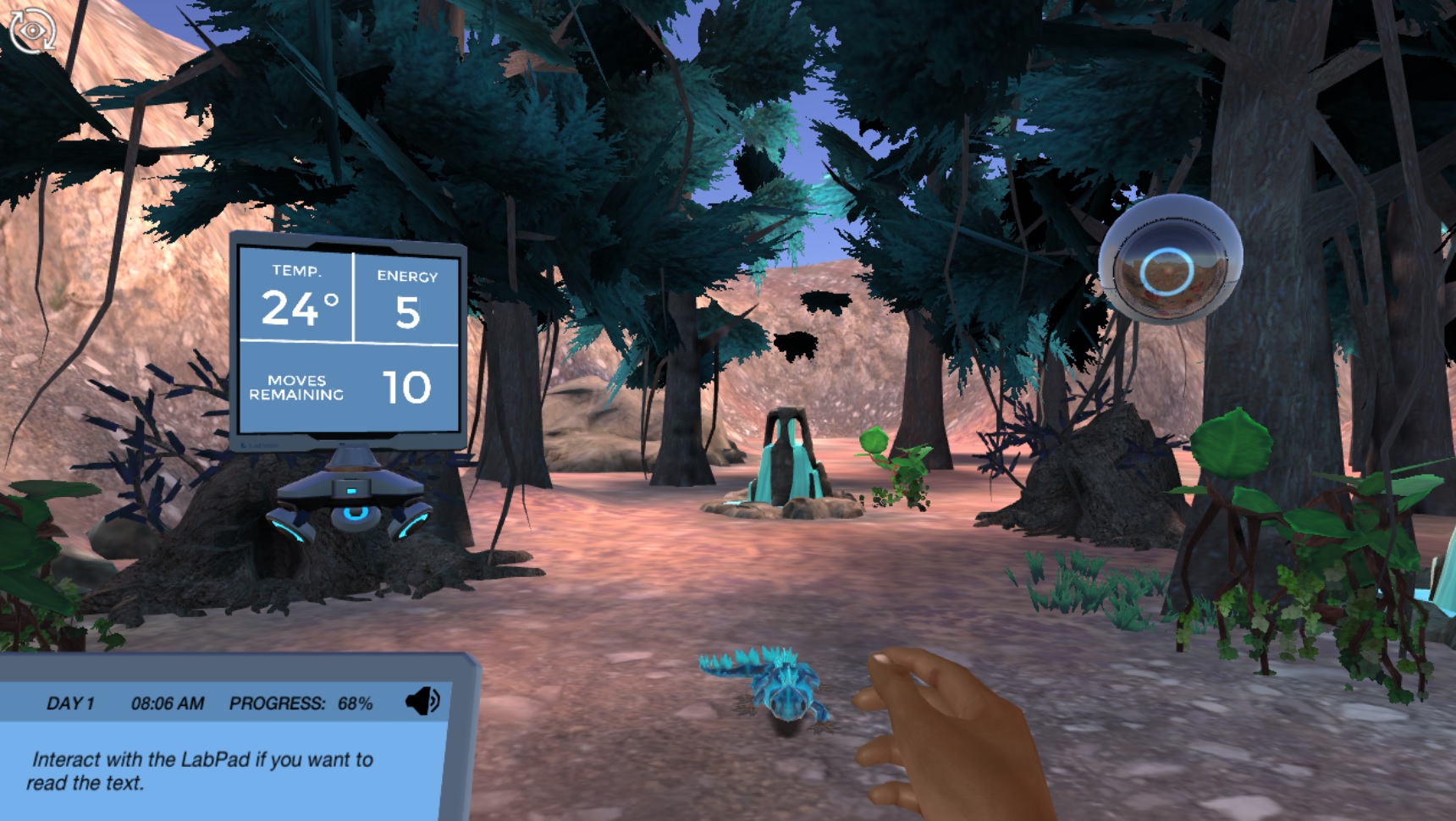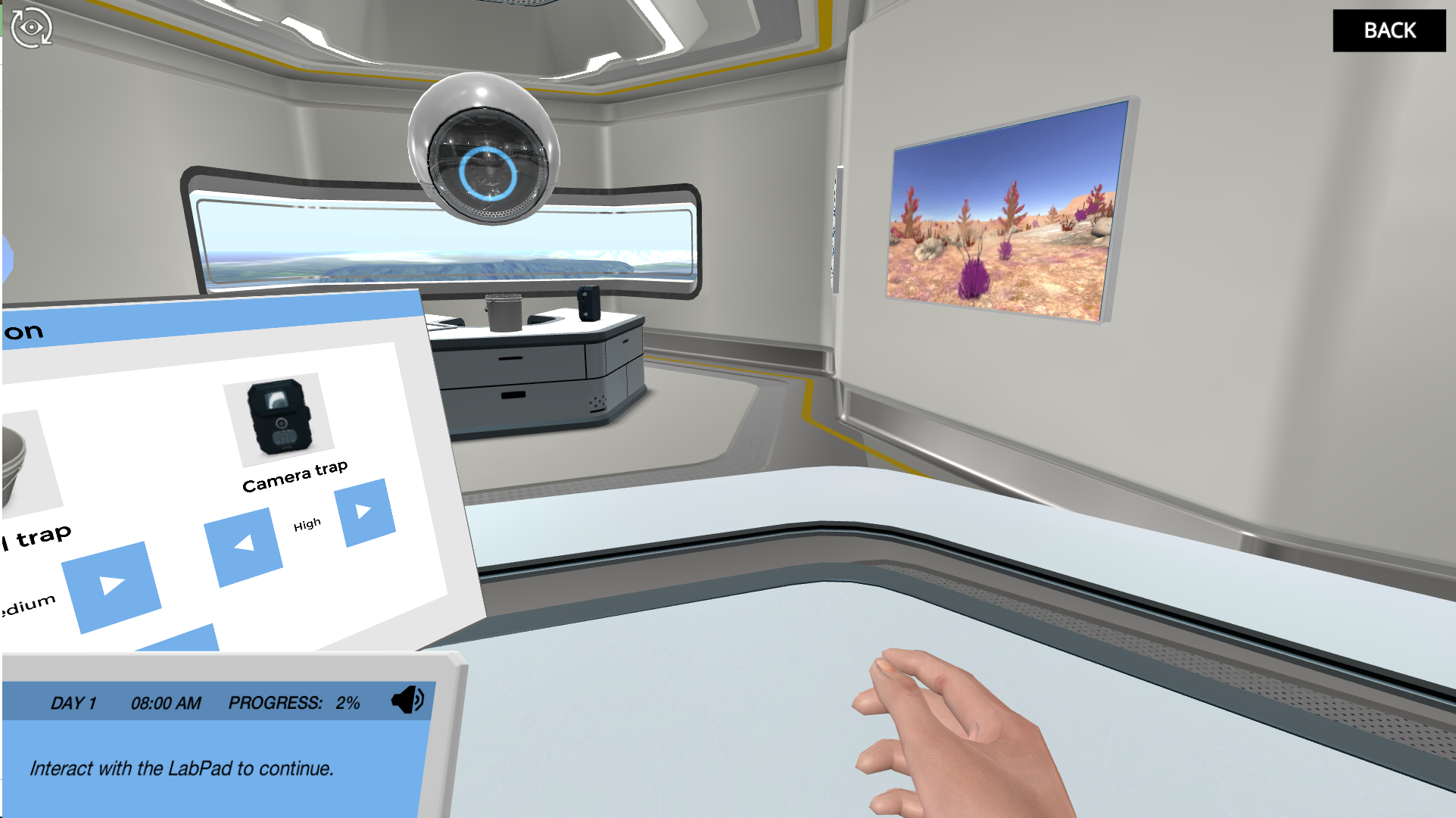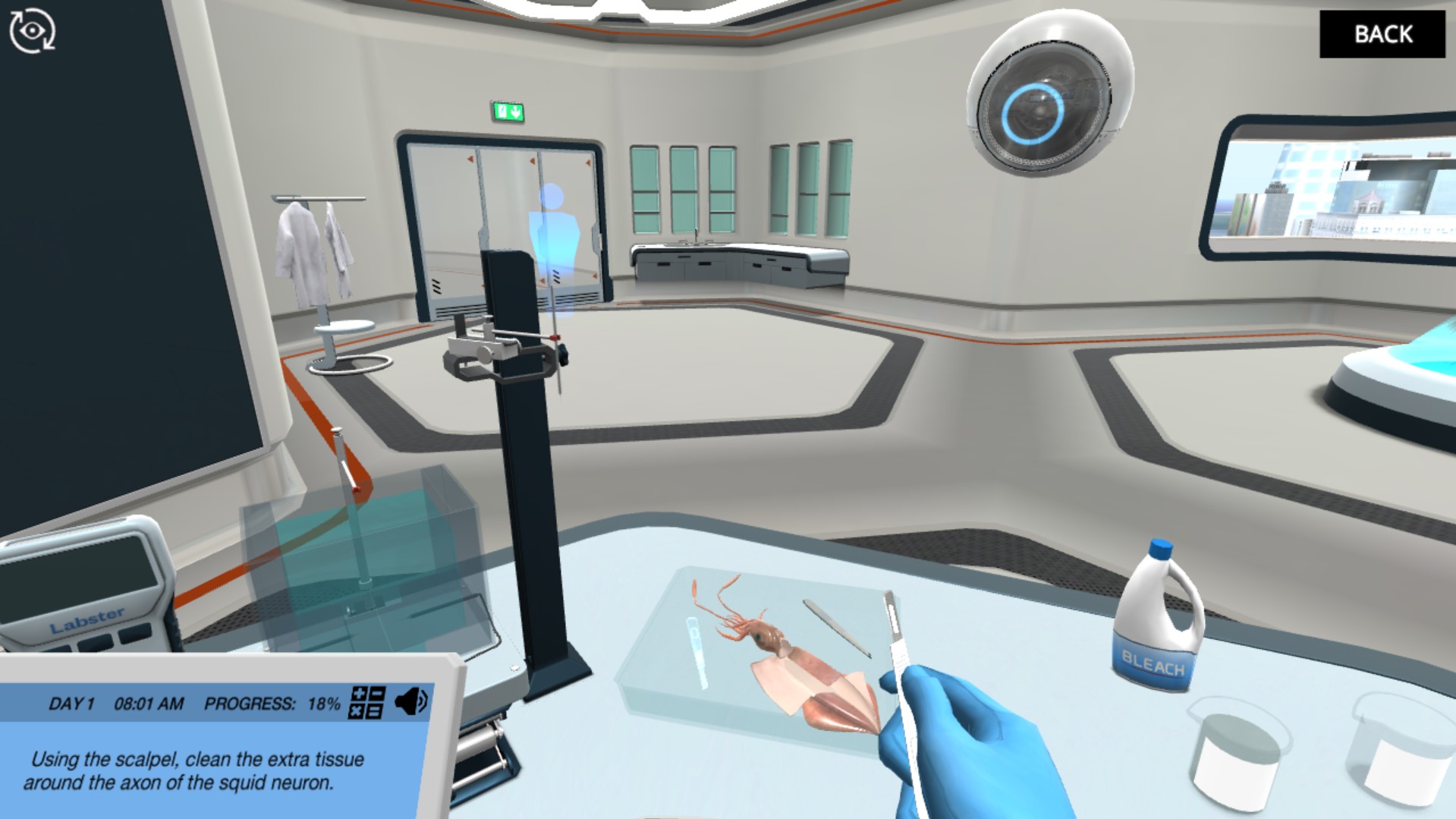Collection Simulations
SDS-PAGE: Separating proteins by molecular weight
Investigate each step of SDS-PAGE from gel selection and sample preparation to chamber assembly and what really happens when the current turns on, to separate proteins solely by molecular weight, bringing us one step closer to identifying the protein.
Cancer: Impact of BRCA mutations
Investigate the principles of cancer development and cancer-related gene mutations to assess the risk of breast cancer development in a patient with a history of cancer in the family.
Spatial Ecology: Learn how the environment can influence the distribution of species
Help the scientists on the exoplanet Astakos IV to choose the location of the new research center by finding out where it will have the least impact on the ecological diversity of the area.
Smooth muscle: Learn how your gut contracts!
Join a physiology laboratory to understand how smooth muscle contracts by performing several in vitro experiments, and help your friend identify the cause of her intestinal pain.
Skeletal Muscle: Learn about the muscles we use to walk and run
Investigate the properties of two types of skeletal muscle and analyze their fiber composition. Use histochemistry and force transduction to compare muscles and learn why you can stay energized on long walks but get tired from a short sprint.
Sensory transduction: Learn why you feel pain when you get hit by a rock
Learn the basic mechanisms of sensory transduction by performing in vitro and in vivo experiments and determine which anesthetic drug will allow your friend to keep climbing a mountain without having the muscles affected.
RNA Extraction: Sample and purify mRNA from pigs
Learn how to extract RNA from pig fat tissue samples and how to purify messenger RNA using magnetic beads.
Intestinal Glucose Transport: Study a mouse intestine for diagnosis
Turn a mouse intestine inside out and use it to study glucose transport in order to figure out what is wrong with an infant.
Population Growth: Lets catch some goslins!
Help ecologists devise a conservation strategy that will protect the goslin population on a newly discovered exoplanet, Astakos IV.
Pigment Extraction: Use photosynthesis to produce biofuel and reduce pollution
Relevant pigments using different solvents and measure their absorbance spectra to help a group of engineers figure out if a mysterious dark algae is able to absorb green light. Your work will help create a sustainable plan for energy production that will use sunlight, heat from a coal power plant, and nutrients from a fish farm.
Renal Physiology: Find the mode of action of a diuretic drug
Explore the structure of the kidney and discover its different functions by trying to uncover the mode of action of a new diuretic drug that has the potential to prevent hypertension.
Ecological niches: Choose the right Kuppelfang to bring to Earth!
Investigate why the Kuppelfangs died when transplanted to the new Astakos IV biodome on Earth. Quantify their realized and fundamental niche, and explore how acclimation affects the boundaries of a niche.
Landscape Ecology: Determine persistence in a spatially heterogeneous landscape
Discover unique areas within an exoplanet’s landscape and apply your findings to predict the persistence of an alien species by estimating colonization and extinction rates.
Thermal Homeostasis: Apply thermoregulation to climate change
See how deer physiologically respond to climate change. Use a metabolic chamber and Douglas bag to measure the oxygen content, humidity and volume of a deer’s exhaled breath at different temperatures.
Foraging: Build a foraging theory to save the crops
Join the human colony on the fictional exoplanet Astakos IV to study the local alien species. What do they eat?hy and where do they forage for food? Can you build a model using our foraging theories from Earth?
Food webs: Learn about interactions between trophic levels
Help reduce the impact from humans on an aquatic ecosystem on an exoplanet by using your knowledge of trophic cascades in a food web.
Electron Transport Chain: A rollercoaster ride that produces energy
Help a group of engineers figure out if a mysterious dark alga is able to do photosynthesis using green light and measure this process with the Hill reaction. If it is, your work will help create a sustainable plan that will use sunlight and pollution sources for biofuel production.
Endocrinology: Learn how contraceptives work
Develop a method for keeping a population of rabbits under control by using hormonal treatments. Investigate how different concentrations of different hormones impact the fertility of male and female rabbits.
Ecosystem Dynamics: Assess the effect of fertilizers on the phosphorus cycle
Analyze the effects of fertilizers on the phosphorus cycle and help the residents in Astakos IV to increase their crop yield without compromising the environment.
Cardiovascular Function During Exercise: Learn how your body reacts to exercise
Use medical tests to gather information about patients and determine how their cardiovascular systems respond to different exercise intensities.
Cardio-respiratory Physiology: How can seals dive so deep for so long?
Monitor three dives of a Weddell seal in Antarctica and discover how long it can dive with the oxygen available in its stores.
Competition: Learn to identify and quantify competition between species
Help the residents in Astakos IV to increase the yield of their crops by reducing the competition between different species.
Behavioral Thermoregulation: Help keep a gecksi alive!
Life is hard when you need to constantly work to maintain your body temperature and keep your energy levels in check. Think like a gecksi, make wise choices and try to keep the gecksi alive in three challenging environments!
Biodiversity: Assess and compare biodiversity on an exoplanet
Travel to the exoplanet Astakos IV and use ecological methods to assess and compare biodiversity over time and between different sites.
Action Potential Lab: Experiment with a squid neuron
Dissect a squid and use its giant neuron to witness the propagation of information in the shape of an action potential created by an electric current. Use this information to identify a neurotoxin affecting a hospitalized patient.
Boost STEM Pass Rates
Boost Learning with Fun
75% of students show high engagement and improved grades with Labster
Discover Simulations That Match Your Syllabus
Easily bolster your learning objectives with relevant, interactive content
Place Students in the Shoes of Real Scientists
Practice a lab procedure or visualize theory through narrative-driven scenarios



